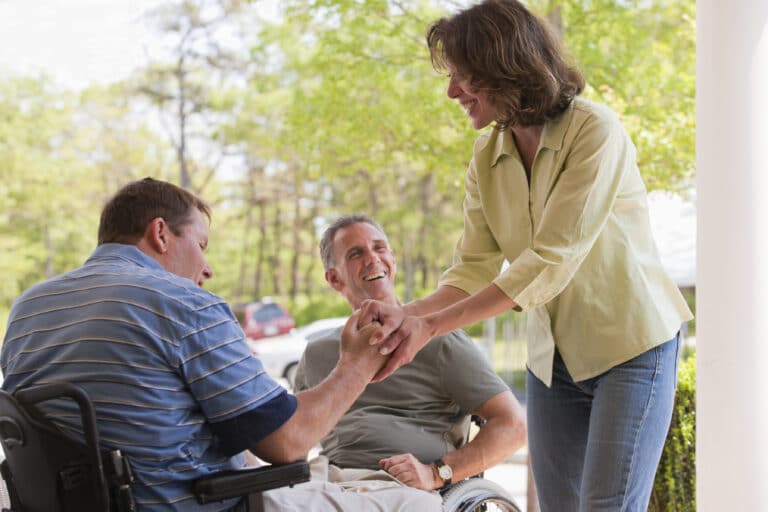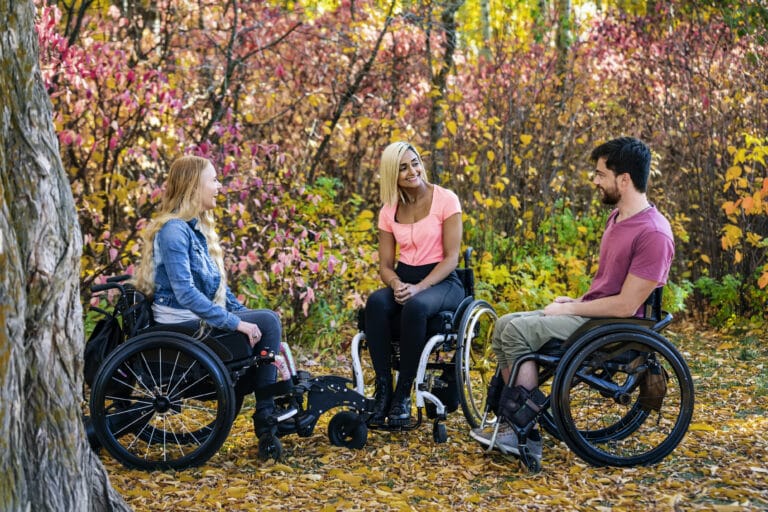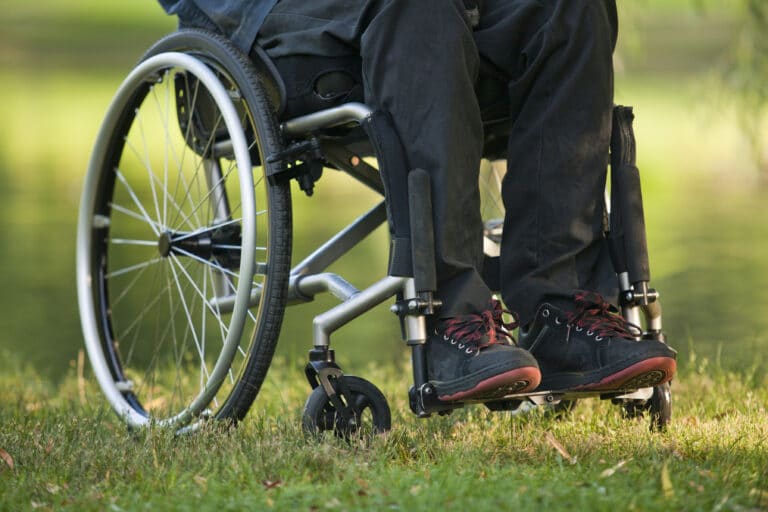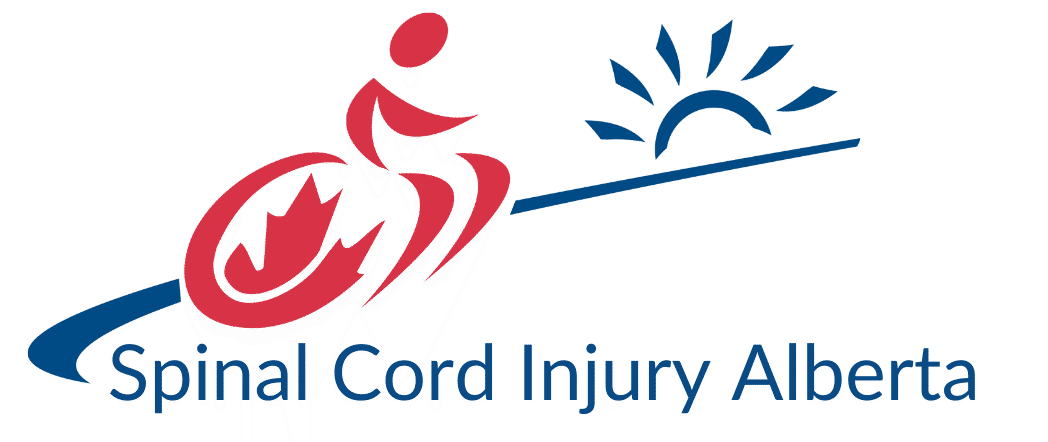Have You Been Injured?
Client Services and Coordination
The goal of Client Support and Service Coordination is to ensure that individuals and families of those with spinal cord injury and similar physical disabilities and their families (consumers) receive the support they need after injury, to transition effectively from hospital to the community, and to ensure they are able to achieve their optimal level of integration in the community.
This work is conducted by Spinal Cord Injury Alberta’s Client Service Coordinators (CSCs). They work directly with consumers and their families, beginning at the time of injury, to identify unmet needs, help access services, and set goals for the future. Their work is critical to ensuring that consumers avoid confusion, frustration, and hopelessness as they undertake the daunting task of adjusting to life with an SCI. CSCs remain available to consumers as they age with a disability, helping them to adjust and access necessary services.
To learn more, contact a Client Service Coordinator today.

Peer Program
Spinal Cord Injury Alberta (SCI-AB) was initially founded as an organization of peer volunteers who offered help to injured veterans. It was recognized early on that access to the support of people who have personal experience living with a disability leads to improved emotional and physical well-being.
Peers provide support, mentoring, coaching, and information that contributes to individuals’ successful recovery and transition. Peers are also role models, offering hope to those who may need it. Peers are recognized as being central to adjustment in many spheres of community-based rehabilitation.
Connect with our Peer Program today.

Community Access for People in Continuing Care
Community Access for People in Continuing Care (CAPCC) is an Alberta-wide program for adults who are under the age of 65 and living in long term care.
The program addresses isolation and helps remove barriers by assisting persons with disabilities access their communities and recreation/leisure activities of their choice.
Who is eligible?
Participants between the age of 18 to 65 who live in long-term care facilities and who are able to actively participate in activities in the community.
Services
To participate in the community based activities, some participants require supports and services from our Community Access Coordinators (CACs) such as:
- Deciding what their interests are
- Finding a compatible companion
- Finding out what events and activities are available in their community
- Providing assistance with any necessary paperwork
CACs work with residents in long-term care facilities, facility staff, and other stakeholders (family members, guardians, etc.) to help residents rediscover their interests, set goals, and participate in activities in the community. Companions are not intended to replace health supports provided in facilities and are not intended to be used as “paid friends”. Family members and friends cannot be paid companions. Activities can include:
- Connecting with family and friends
- Volunteering
- Art classes
- Fitness classes
- Church or other spiritual activities
- Movies
- Sporting events
Funding for outings is granted in three categories
(based on individualized service plans)
Companion Care
Refers to persons paid to support CAPCC participants in pursuit of the goals in their service plan. This includes, recreational activities, provision of basic personal care while out in the community, and supervision for the safety of the participant.
Transportation Fees
Reimbursement of cost of accessible transportation.
Access Fees
Reimbursement for entrance fees, registration fees, etc. (monthly maximums apply)
Background
The CAPCC initiative was created in response to a recommendation of the 2005 MLA Task Force on Continuing Care Health Service and Accommodation Standards. This task force revealed that while some facilities have recreational and leisure programming, it is not always age appropriate.
Further more, individualized support for those who wish to attend community activities or programs on their own is limited. As a result, individuals not interested in group activities/outings remain isolated within the facility, often in their rooms for most of the day. Many of these individuals struggle with social isolation and loneliness.
The Government of Alberta, Alberta Human Services is responsible for funding the CAPCC initiative and provides contract funding to organizations, like Spinal Cord Injury Alberta, across the province to deliver the CAPCC program.
For more information about CAPCC or to access this program, contact one of our Community Access Coordinators, or visit the Government of Alberta’s website.









